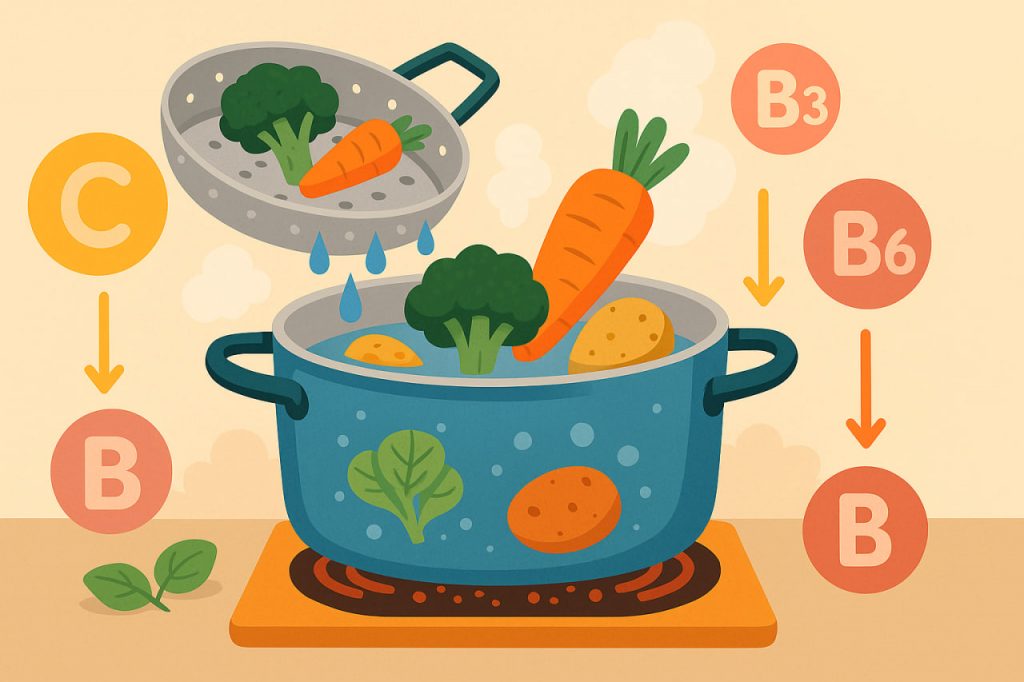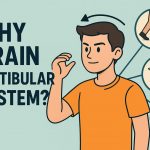Cooking food is essential for safety, taste, and easier digestion, but it can also reduce the nutritional value of meals. Many vitamins are sensitive to heat, light, and oxygen, which means that certain cooking methods can lead to their loss. Understanding which vitamins are most affected helps in choosing the best preparation techniques to preserve nutrients.
Heat-Sensitive Vitamins
The most vulnerable nutrients are the water-soluble vitamins, which dissolve in cooking water and break down easily when exposed to heat. These include the B vitamins (like thiamine, riboflavin, niacin, folate, and B6) and vitamin C. Long boiling, frying, or baking can significantly reduce their levels in food.
Vitamin C Loss
Vitamin C is particularly fragile. It breaks down quickly in high temperatures and can leach into water during boiling. For example, boiling broccoli or potatoes may reduce their vitamin C content by 30–50%. Steaming or microwaving is a better way to preserve it.
B Vitamins and Cooking
The B group vitamins are essential for energy metabolism and nervous system health. They are water-soluble and easily destroyed by long cooking times. For example, boiling rice or pasta leads to a noticeable reduction in B vitamins, especially if the cooking water is discarded. Steaming, stir-frying, or baking with less liquid helps preserve them.
Fat-Soluble Vitamins
Vitamins A, D, E, and K are more stable during cooking because they dissolve in fat rather than water. However, prolonged exposure to high temperatures, such as deep frying, can still reduce their levels. Interestingly, gentle cooking with small amounts of oil can even increase the absorption of fat-soluble vitamins.
Best Methods to Preserve Vitamins
- Steaming retains the most vitamins, especially vitamin C.
- Microwaving with little water keeps nutrients locked in.
- Sautéing and stir-frying preserve vitamins if cooking is brief.
- Avoiding long boiling prevents water-soluble vitamins from leaching out.
Conclusion
Cooking is necessary, but it can reduce important nutrients like vitamin C and B vitamins. By using gentler methods such as steaming, microwaving, or quick stir-frying, much of the vitamin content can be preserved. Understanding how different vitamins react to heat helps maintain a balanced and nutrient-rich diet.
Glossary
- Water-soluble vitamins – vitamins that dissolve in water, such as vitamin C and B vitamins.
- Fat-soluble vitamins – vitamins stored in fat tissues, such as A, D, E, and K.
- Leaching – the process of nutrients escaping into cooking water.
- Metabolism – the chemical processes that maintain life in the body.
- Absorption – how the body takes in nutrients from food.


